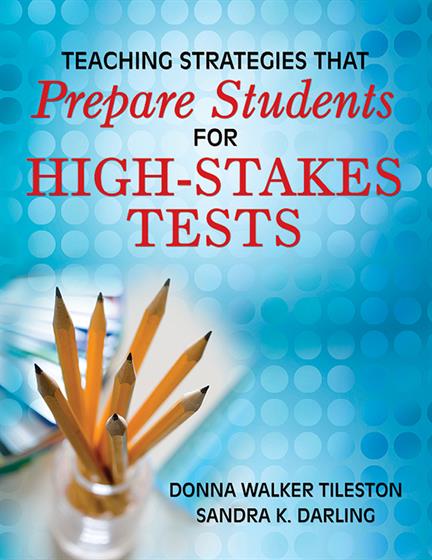Hands-on, Practical Guidance for Educators
From math,
literacy, science, equity, multilingual learners, and SEL, to assessment, school counseling,
and education leadership, our books are research-based and authored by experts
on topics most relevant to what educators are facing today.

Teaching Strategies That Prepare Students for High-Stakes Tests
Improve student performance on high-stakes tests with research-proven practices for teaching to standards!
This step-by-step manual outlines a straightforward, powerful model for infusing state standards and knowledge benchmarks into lesson plans and assessments to boost student success on high-stakes exams and enhance overall academic achievement. Grounded in the results of more than 30,000 research studies, these best practices empower teachers to easily:
- Unpack standards by grade level into measurable units
- Identify key elements of state tests
- Determine and assess critical benchmarks
- Select the most appropriate and effective strategies for teaching declarative and procedural knowledge
- Implement strategies with reproducible templates
- Grade Level: PreK-12
- ISBN: 9781412949767
- Published By: Corwin
- Year: 2008
- Page Count: 104
- Publication date: May 29, 2008
Review Copies
Review copies may be requested by individuals planning to purchase 10 or more copies for a team or considering a book for adoption in a higher ed course. Request review copy



